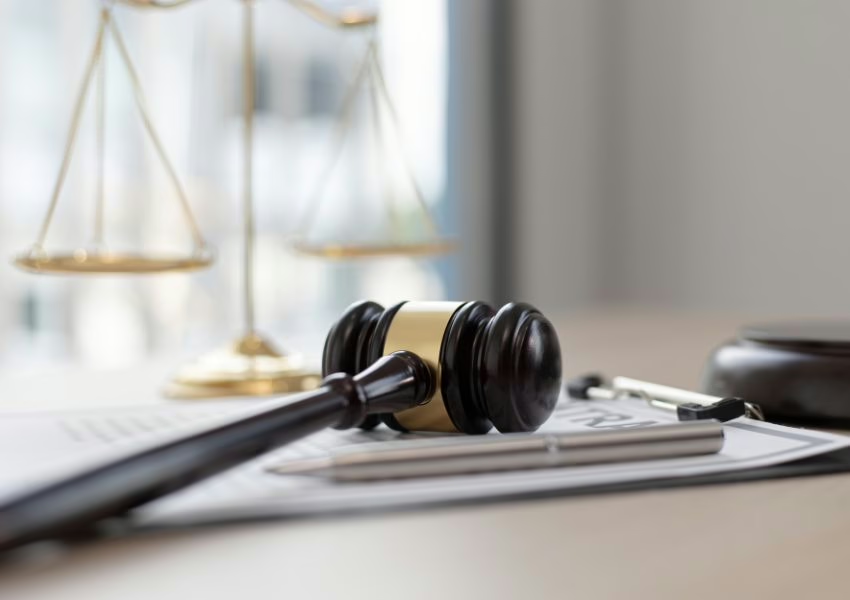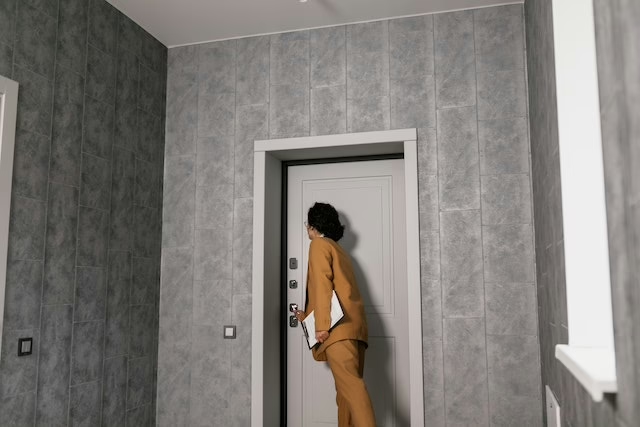Key Takeaways
- South Carolina landlords must adhere to fair housing laws, lease regulations, and safety codes to protect themselves and their tenants and avoid legal disputes.
- Tenants have the right to a safe and habitable living environment, while landlords have the right to collect rent, enforce lease terms, and enter the property with proper notice.
- Understanding and complying with South Carolina’s landlord-tenant laws, such as security deposit handling, privacy rights, and maintenance responsibilities, ensures smooth rental operations and legal protection for all parties.
Following fair housing laws, lease regulations, and safety codes protects both landlords and renters. Proper legal adherence ensures smooth operations, builds trust, and prevents costly legal disputes. In this guide, the team at Blue Bridge Management will go over everything landlords in South Carolina should know about rental laws to maintain a successful, risk-free rental business.
Required Landlord Disclosures in South Carolina
Landlords are obliged to disclose key information to tenants when they sign the lease. Make sure to share the following information with your tenants:
- Lead-Based Paint: If your property was built before 1978, you must assess if there are any concentrations of lead paint and inform tenants about it.
- Security Deposit Standards: If you own five or more adjoining rental units and charge different amounts for the deposit, you must disclose the standards used for calculating the deposit amount for each unit.
- Authorized Agents: You must also provide tenants with the names, addresses, and contact information of all people who are involved in owning and managing the property.
South Carolina Tenant Rights and Responsibilities
As a landlord, it’s your responsibility to respect and protect tenants’ rights, including the following:
- The right to live in a clean, safe, and habitable unit.
- Fair housing rights.
- Tenants’ right for repairs.
- Privacy rights.

Additionally, you’re responsible for ensuring tenants comply with their responsibilities. Depending on the terms of the lease, this can include the following:
- Paying rent on time every month.
- Keeping the property in good condition.
- Promptly informing you or the property manager of any maintenance or repairs issues.
- Not disturbing neighbors or other tenants.
- Abstaining from consciously damaging the property.
- Following the terms of the lease.
- Continuing to pay rent for the remaining lease period after breaking their lease early.
South Carolina Landlord Rights and Responsibilities
Landlords have a series of rights and responsibilities that are overseen by rental laws. The following are the basic landlord rights in the state of South Carolina:
- Deciding who to rent their property to, as long as they don’t breach fair housing laws.
- Collecting rent on time every month and charging late fees if tenants haven’t paid by the agreed grace period.
- Increasing rent by any amount and as often as they choose.
- Evicting tenants who’ve violated the terms of the lease, continuously fail to pay rent on time or at all, or are involved in illegal activities.
- Making deductions from the security deposit to cover late fees, unpaid rent, or property damage.
- Entering the property, as long as they provide sufficient notice in advance.

On the other hand, landlords are responsible for the following tasks:
- Ensuring the property complies with all the necessary health and building codes.
- Maintaining the property in good condition.
- Ensuring plumbing, heating, and electrical systems are functioning correctly.
- Addressing repairs promptly.
- Complying with fair housing laws.
- Respecting tenants’ privacy and the covenant for quiet enjoyment.
- Returning the deposit up to 30 days after the tenants move out.
An Overview of the Landlord-Tenant Laws in South Carolina
You need to comply with many landlord-tenant laws, many of which change frequently. To help you out, we’ve compiled this list of the most important rental laws you should be aware of:
South Carolina’s Housing Discrimination Laws
The Federal Fair Housing Act prevents homebuyers and tenants from being discriminated against based on their race, national origin, color, religion, familial status, gender, or disability. Here are some actions you should abstain from to ensure compliance with fair housing laws:
- Explicitly stating that certain groups are not welcome in your rental.
- Failing to make reasonable accommodations for tenants with disabilities.
- Offering varying terms, conditions, or privileges based on tenants’ characteristics.
- Advertising that encourages only certain groups to apply.
Landlord’s Right to Enter the Unit and Tenant Privacy
As a landlord, you must always respect tenants’ privacy. This includes keeping tenants’ information securely stored, abstaining from going through tenants’ mail or personal belongings, and never entering the unit unannounced.

While landlords have the right to enter the dwelling for inspections, maintenance, and property showings, they must always have at least 24 hours of advance notice before entry. The only exceptions are previously scheduled services and emergencies.
Security Deposit Handling
There is no limit to the amount landlords can charge for a security deposit in South Carolina. Additionally, landlords aren’t required to document the condition of the rental unit at the start of the lease term or disclose where the deposit will be held. However, landlords must return the deposit within a maximum of 30 days after the tenants move out.
Renters’ Rights to Withhold Rent in South Carolina
Tenants cannot withhold rent to force landlords to address repairs. Additionally, they cannot make the repairs themselves and deduct the cost from their next rent paycheck. However, as a South Carolina landlord, you’re responsible for addressing repairs in a timely manner.
Bottom Line
Before listing a property for rent in South Carolina, you should take the time to familiarize yourself with the local rental laws. Ensuring legal compliance will help you avoid costly fines and legal disputes.
If you want help managing your properties in South Carolina, contact Blue Bridge Management! Our team of dedicated property managers can help you navigate the intricacies of renting a property so that you can focus on other essential aspects of your rental business.
Disclaimer: This blog should not be used as a substitute for legal advice from a licensed attorney in your state. Laws frequently change, and this post might not be updated at the time of your reading. Please contact us for any questions you have in regards to this content or any other aspect of your property management needs.
